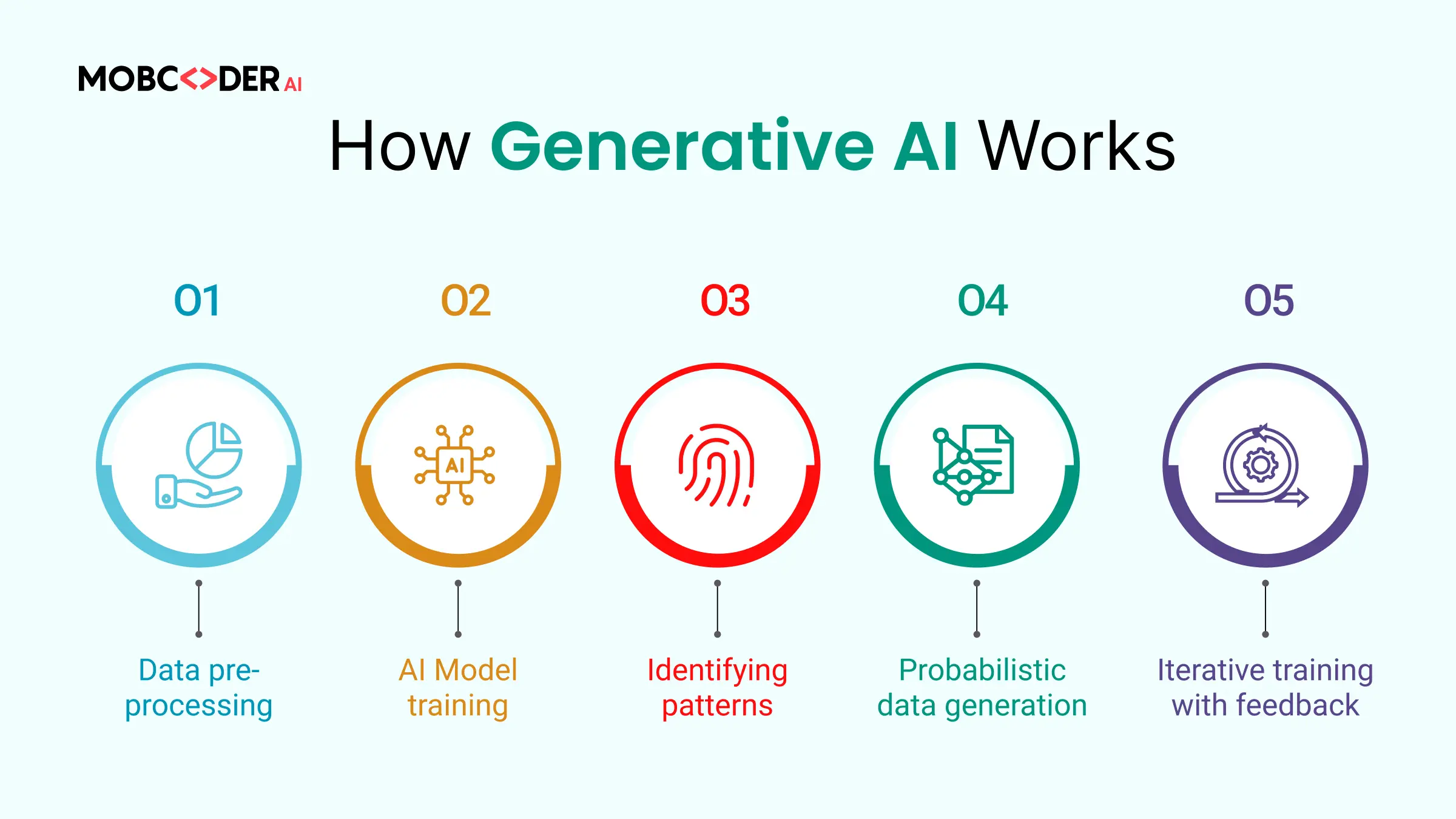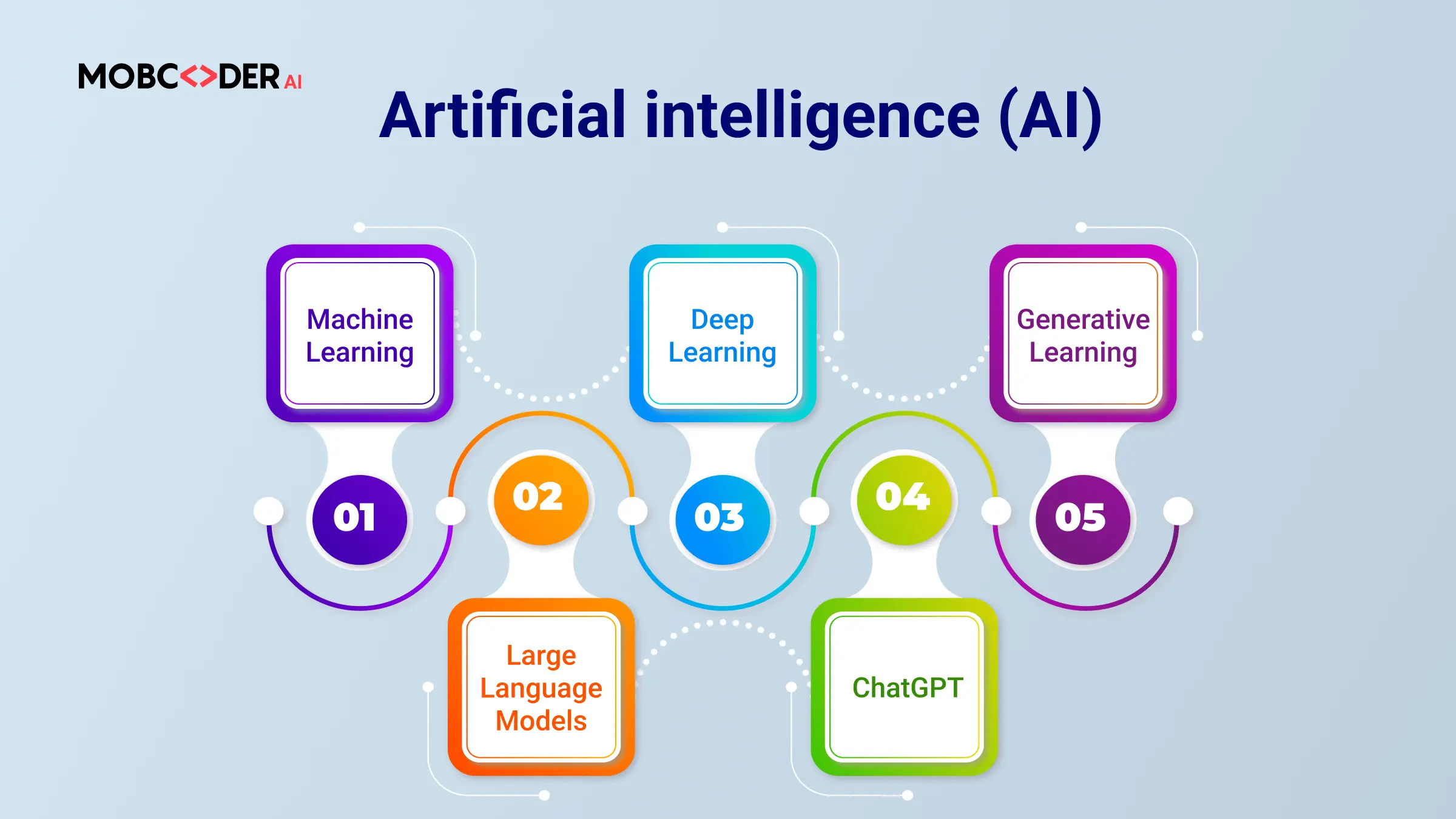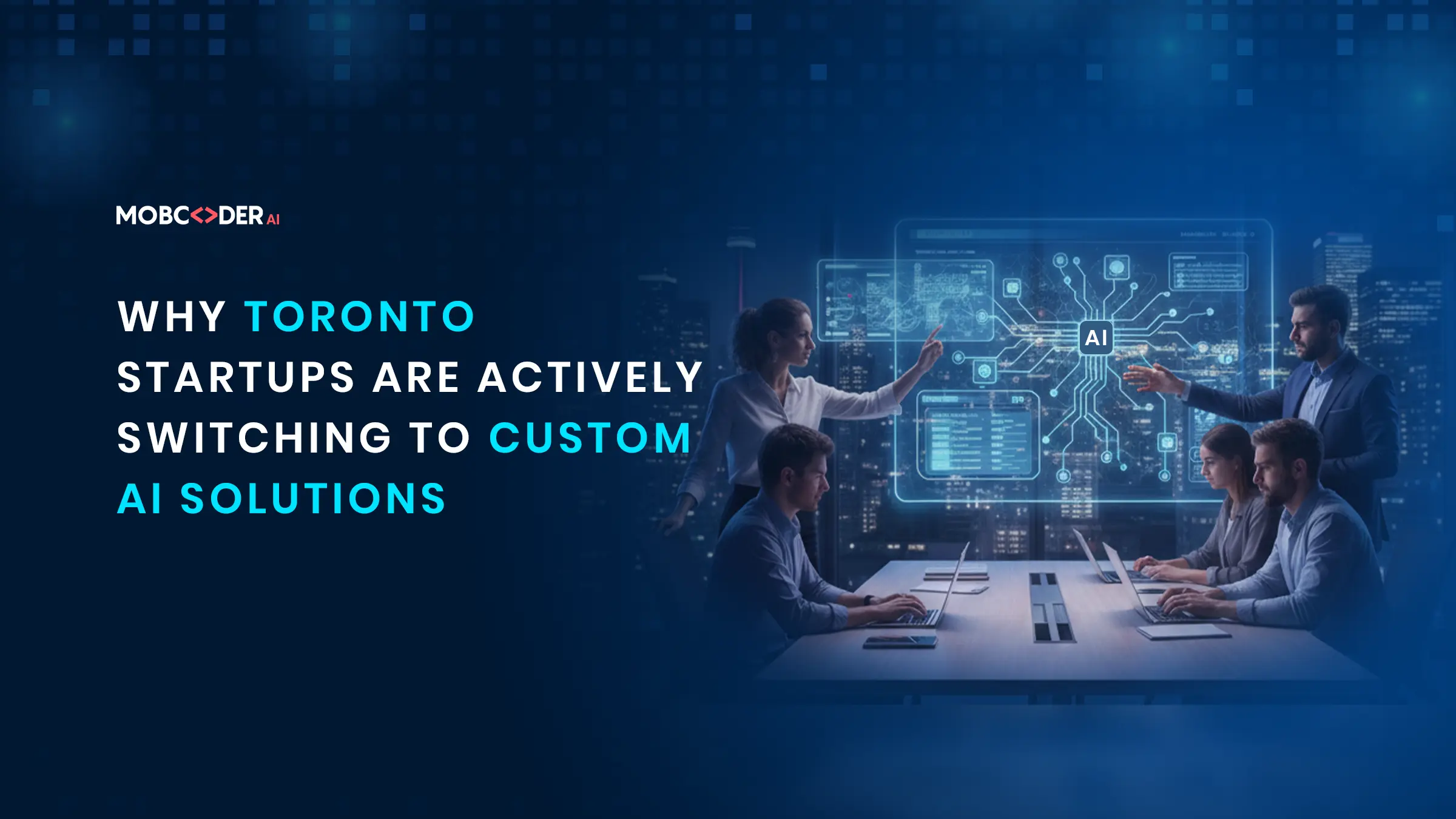September 04, 2025
Girijesh Kumar
Introduction
What is Generative AI?
The Role of Generative AI in Healthcare
The Role of Generative AI in Finance
The Role of Generative AI in Technology
Cross-Industry Benefits of Generative AI
Challenges of Generative AI Adoption
The Future of Generative AI
Final Thoughts
Frequently Asked Questions (FAQ)
Generative Artificial Intelligence (Generative AI or GenAI) is no longer just a futuristic concept—it is actively transforming industries across the globe. From personalized healthcare solutions to fraud detection in finance and innovation in technology, generative AI is driving unprecedented efficiency, creativity, and growth.
In this blog, we'll explore how generative AI is shaping the future of healthcare, finance, and technology industries, its benefits, challenges, and what businesses must do to stay ahead in this AI-driven era.
Generative AI refers to a subset of artificial intelligence that creates new content, ideas, or solutions by learning patterns from existing data. Unlike traditional AI models, which analyze and classify data, generative AI can generate text, images, code, designs, and simulations.
Large Language Models (LLMs): Tools like ChatGPT and Bard for natural language processing.
Image and Video Generation: AI tools like DALL·E and Stable Diffusion for creative media.
Synthetic Data Generation: Producing realistic datasets for model training.
Predictive Simulations: Modeling outcomes in complex industries like healthcare and finance.
Discover More: Agentic AI Development Company vs Traditional AI Firms: Key Differences Explained
The healthcare industry is witnessing a paradigm shift as generative AI redefines patient care, research, and operational efficiency.
Generative AI can analyze genomic data, patient history, and lifestyle factors to create personalized treatment plans. For example, AI can recommend tailored cancer therapies or suggest optimized drug combinations for chronic diseases.
Pharmaceutical research is traditionally time-consuming and expensive. With generative AI, scientists can simulate molecular structures and predict how potential drugs will behave. This reduces R&D cycles and brings life-saving drugs to market faster.
Generative AI models can enhance diagnostic accuracy by generating and interpreting medical images like X-rays, MRIs, and CT scans. AI not only identifies anomalies but also generates enhanced imaging to guide doctors in decision-making.
AI-driven chatbots and virtual assistants are streamlining patient engagement, scheduling, and post-treatment follow-ups. These systems reduce administrative overhead while improving patient satisfaction.
• Reduced diagnostic errors.
• Faster drug development timelines.
• Improved patient care outcomes.
• Lower operational costs for healthcare providers

The financial sector has been an early adopter of AI, but generative AI is taking innovation to the next level. It is improving decision-making, strengthening security, and enhancing customer experiences.
Generative AI models can simulate fraudulent activities to train systems to recognize and block them in real-time. This significantly enhances fraud detection accuracy across banking and payment systems.
Banks and fintech companies use generative AI to create tailored financial products, credit scoring models, and investment strategies for customers. AI-driven personalization increases customer loyalty and revenue.
Discover More: Top 5 Use Cases of Hiring an Agentic AI Development Company in 2025
Generative AI simplifies complex tasks like regulatory reporting, compliance monitoring, and audit preparation. By generating real-time reports, institutions save time and reduce human error.
AI can generate predictive models that forecast market trends, stock performance, and economic shifts. These insights help investors and institutions make informed financial decisions.
• Strengthened fraud prevention systems.
• Enhanced customer experience through personalization.
• Faster compliance reporting.
• Improved investment decision-making.
In the technology industry itself, generative AI is both a tool and a catalyst for innovation. From software development to product design, it is reshaping how technology evolves.
Generative AI tools can write, debug, and optimize code, enabling developers to focus on high-value tasks. Platforms like GitHub Copilot showcase how AI can accelerate software engineering.
Generative AI models simulate cyberattacks to test vulnerabilities in IT systems. By predicting threat patterns, organizations can proactively strengthen their cybersecurity posture.
In hardware and consumer technology, generative AI aids in designing prototypes, simulating performance, and improving usability. This reduces time-to-market and fosters creativity.
Generative AI is powering intelligent virtual assistants, document summarizers, and workflow automation tools that streamline corporate operations and improve productivity.
• Faster software development cycles.
• Stronger cybersecurity defenses.
• Cost-effective product design.
• Higher workplace productivity through automation.
Discover More: Why Fintech Companies Rely on Custom Software Development Services for Growth
Across healthcare, finance, and technology, generative AI delivers common benefits:
Automating repetitive tasks reduces costs and time.
Real-time analytics improve accuracy and speed of decision-making.
New products, services, and solutions emerge faster.
Businesses can adapt AI tools across multiple functions seamlessly.

While generative AI offers immense potential, it also presents challenges that organizations must address:
Sensitive patient, financial, or user data must be safeguarded.
Inaccurate or biased data can lead to flawed outcomes.
Industries must ensure AI tools align with legal frameworks.
Building and scaling AI infrastructure requires significant investment.
Employees need training to work alongside AI systems.
Generative AI is poised to become a mainstream driver of digital transformation. According to industry reports:
• The global Generative AI market is expected to surpass $100 billion by 2030.
• Healthcare and finance will be among the top adopters of AI-driven innovation.
• Generative AI will increasingly integrate with IoT, blockchain, and quantum computing.
Businesses that adopt generative AI early will gain a competitive edge, driving efficiency, innovation, and customer engagement.
Discover More: Custom Software Development in Melbourne: Cost, Talent & What to Expect
Generative AI is not just a technological upgrade—it is a transformative force shaping the future of industries. Healthcare providers can deliver better patient outcomes, financial institutions can offer smarter services, and technology companies can innovate faster than ever before.
As we move into the AI-driven future, organizations must embrace generative AI responsibly, focusing on efficiency, security, and human-AI collaboration. Those who do will lead the next wave of digital transformation.
Generative AI is a type of artificial intelligence that uses machine learning models to create new data, such as text, images, code, or simulations. It works by learning patterns from large datasets and then generating new outputs that mimic real-world data.
Generative AI is revolutionizing healthcare through personalized treatment plans, faster drug discovery, improved medical imaging, and AI-powered virtual assistants. These innovations help reduce diagnostic errors, cut costs, and enhance patient care outcomes.
In finance, generative AI enhances fraud detection, risk management, predictive analytics, personalized financial services, and compliance reporting. This improves efficiency, reduces losses, and provides better customer experiences.
Generative AI assists developers by writing and debugging code, automating workflows, enhancing cybersecurity, and creating innovative product designs. It reduces development cycles and accelerates digital innovation.
Yes, generative AI can simulate fraudulent activities and train systems to detect suspicious transactions in real-time. This strengthens banking fraud detection, credit card security, and financial compliance systems.
Generative AI models can simulate molecular interactions, generate drug candidates, and predict treatment outcomes, significantly reducing the time and cost required for pharmaceutical research and development.
Generative AI can be safe if implemented responsibly with data privacy safeguards, ethical AI frameworks, and regulatory compliance. Industries like healthcare and finance must prioritize security and transparency when adopting AI.
Challenges include data privacy risks, potential bias in AI models, regulatory compliance issues, high implementation costs, and workforce training needs. Overcoming these is essential for sustainable adoption.
Generative AI strengthens cybersecurity by simulating cyberattacks, predicting vulnerabilities, and generating threat detection models. At the same time, businesses must guard against AI being misused for advanced cyber threats.
The future of generative AI involves deeper integration into healthcare, finance, and technology ecosystems, with advancements in real-time analytics, automation, and AI-human collaboration. By 2030, it is expected to be a core driver of digital transformation and efficiency worldwide.

Marc Rothmeye
February 03, 2026
8min

Girijesh Kumar
January 27, 2026
9min

Chris Chorney
January 14, 2025
8min